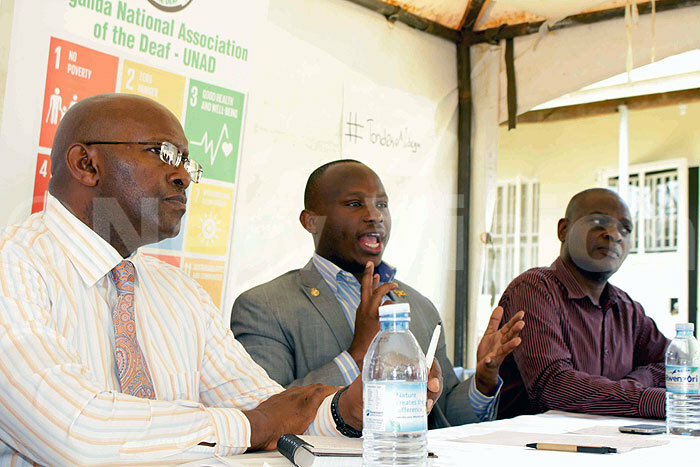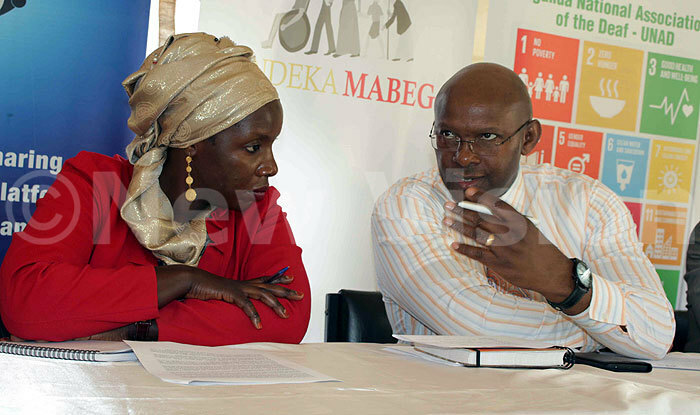'Create strong social safety nets to fight poverty'
Aug 24, 2016
Social safety nets are a collection of services provided by the state or other institutions.

KAMPALA - Whereas the levels of poverty have reduced in Uganda, it is too early to celebrate.
This is because people who have fallen out of poverty tend to fall right back in there if faced with shocks like drought, floods or illness of a breadwinner, as lot of resources that a household has accumulated are either lost or spent.
For that reason, government needs to create strong social safety nets that will keep its people secure, says Richard Ssewakiryanga, the executive director Uganda NGO Forum.
Social safety nets are a collection of services provided by the state or other institutions such as friendly societies.
They include welfare, unemployment benefit, universal healthcare, homeless shelters, and sometimes subsidized services such as public transport, which prevent individuals from falling into poverty beyond a certain level.
"We are concerned because if people keep falling in and out of poverty, this means that all interventions in place end up becoming irrelevant because they do not keep people out of poverty permanently," argued Ssewakiryanga.

Ambrose Murangira, the executive director of UNAD, speaks at the launch. (Credit: Racheal Nassuuna)
He was speaking at the launch of the Uganda localized version of the Sustainable Development Goals (SDGs) dubbed 'Leave no one behind' 'Tondeka Mabega' by the Agenda 2030 Civil Society Organisations core reference group in Kampala.
'Leave no one behind' is a citizens dialogue campaign aimed at amplifying the voices of marginalized groups and demand a fundamental shift in national and global policy commitments to ensure that we end inequality and poverty which perpetuates human suffering.
The dialogues that will mainly take place in remote communities across Uganda will build momentum for all citizens to participate in the implementation and achievement of the SDGs at all levels using local, national and global resources.
"We are saddened that while poverty levels have reduced the number of 'backsliders' has risen. We have to listen to the citizens' views and what as a country can be done," said Ssewakiryanga.
The households that escaped poverty between 2005 and 2009 - around 40% - were again living in poverty by 2011, which is unacceptable, he added.

Sophie Kyagulanyi (left), the program manager at FOWODE, shares a word with Ssewakiryanga. (Credit: Racheal Nassuna)
According to the Uganda Poverty Status report, the number of Ugandans categorized as non-poor but at risk of falling into poverty has been increasing since 1992 from 5.8 million to 15 million in 2013.
Although those at risk have increased, the number of poor people has considerably reduced from 9.8 million in 1992 to 6.7 million in 2013. This means that about 63% of the Ugandan population is either poor or vulnerable to poverty.
At the United Nations Sustainable Development Summit held in September 2015, world leaders adopted the 2030 Agenda for Sustainable Development, which includes a set of 17 Sustainable Development Goals (SDGs) to end poverty, fight inequality and injustice, and tackle climate change by 2030.
Reacting to some of the concerns that still remain a challenge in Uganda, Patrick Mwesigye who heads the Uganda Youth and Adolescent Health Forum said that in order for the youth to contribute to economic growth, they must be given priority because they are prone to all forms of vulnerability like teenage pregnancy and child marriages.
Sophie Kyagulanyi, the program manager at the Forum for Women in Democracy (FOWODE), said there is need to reinvest in agriculture to help women attain skills since a greater percentage of them are engaged in agriculture.
National Network for older Persons chairman John Orach said there is need to change the negative attitude towards the elderly in the country, which has led most of them to be left behind as they are perceived as people that are not able to work.
